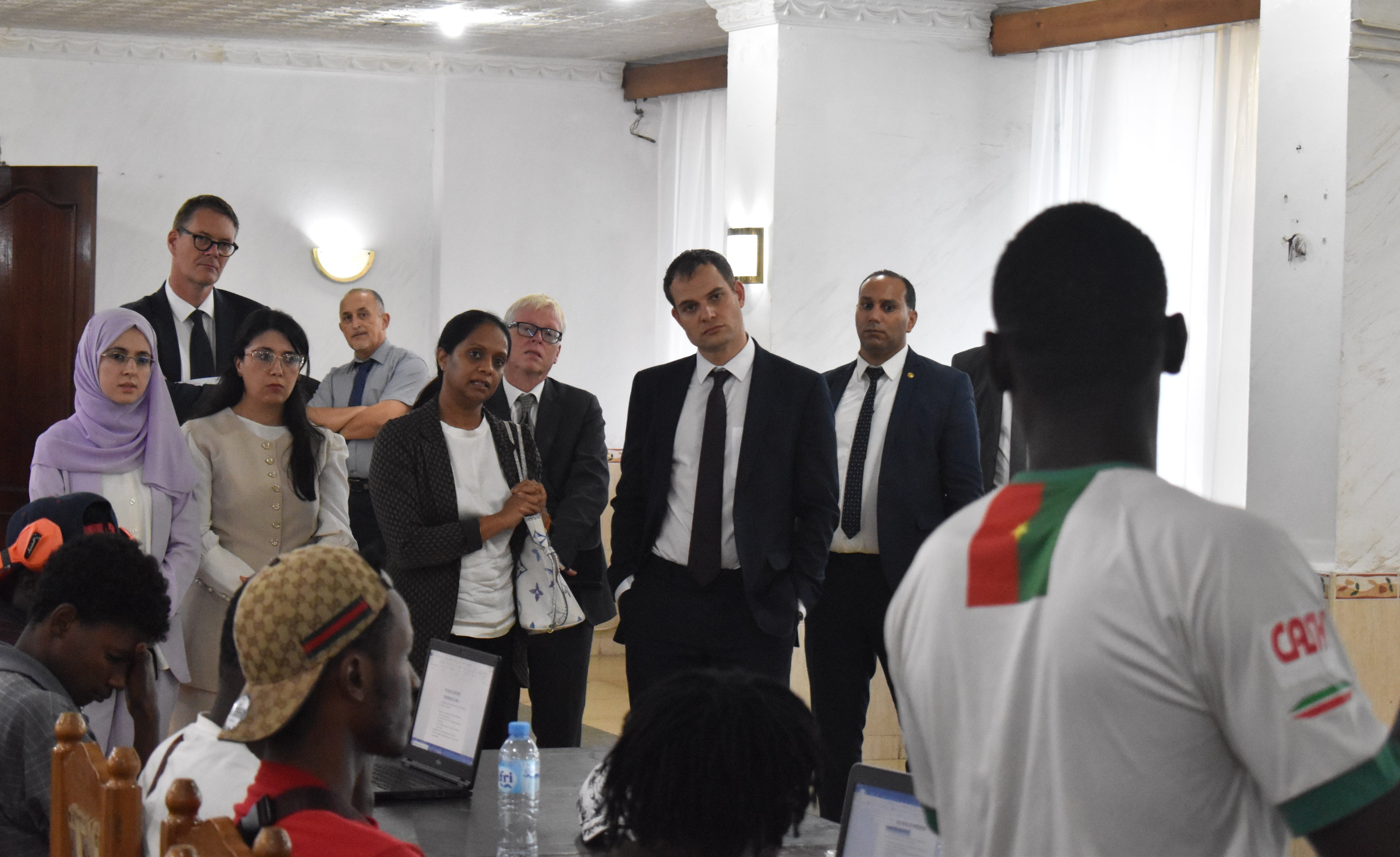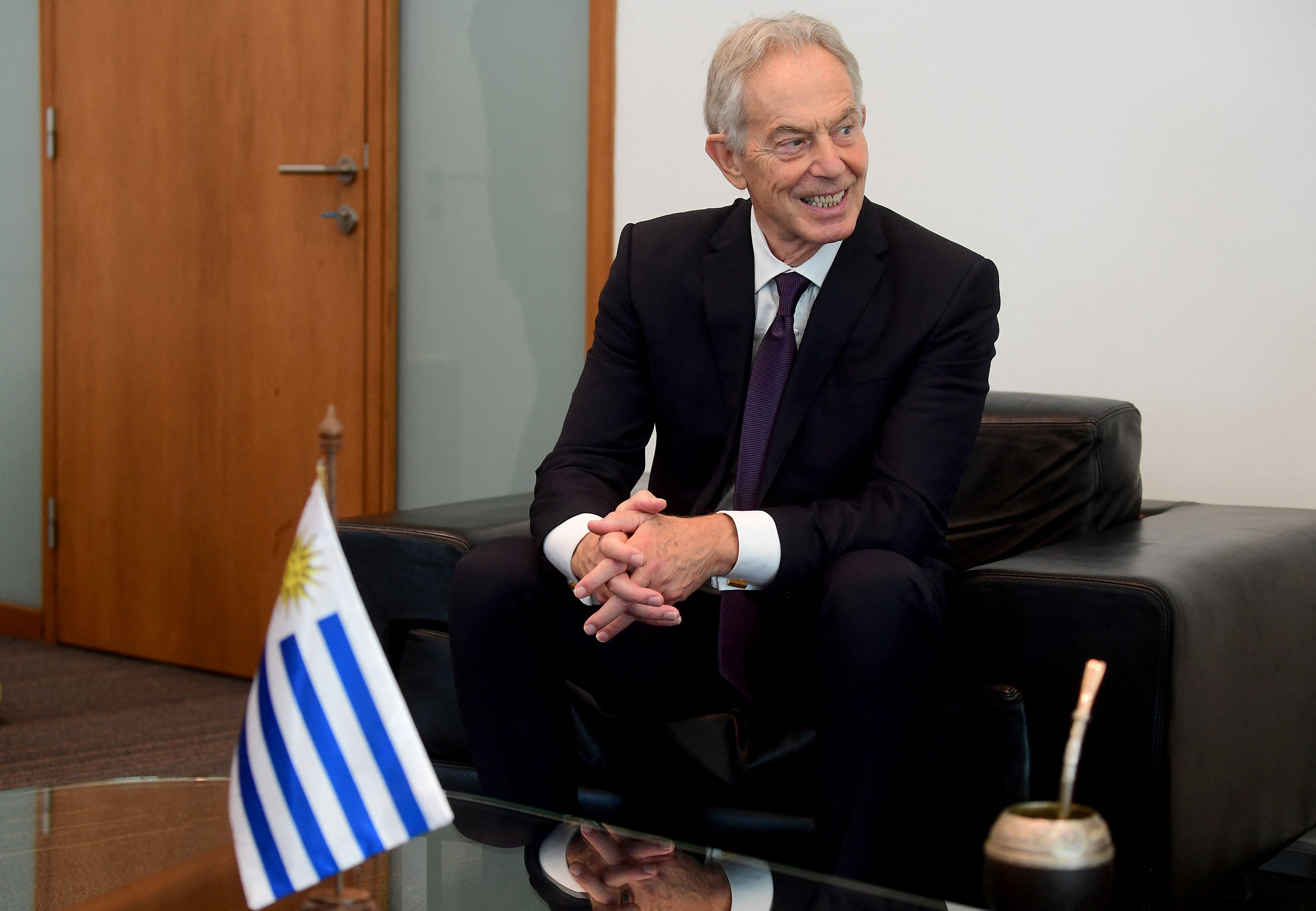Britain’s minister for the Middle East has pushed the case for Sir Tony Blair to be part of the board running Gaza after the second phase of the peace deal is agreed.
With concerns still high that the fragile ceasefire may not hold between Hamas and Israel, minister Hamish Falconer has hailed the qualities of the former prime minister in an exclusive interview with The Independent.
The minister, whose portfolio also covers North Africa and plays a significant role in the migrant crisis, denied Keir Starmer’s decision to slash international aid has fuelled the illegal flow of people to Europe and the UK.

Addressing the ongoing situation in Gaza, he said: “I think Tony Blair obviously has a huge amount of experience, both in the Middle East, and on disarmament issues from the IRA.
“He clearly has a real contribution to make. The questions around phase 2 are to be negotiated, and we want to make sure that the peace board works for everybody. But obviously, Tony Blair has a real contribution to make.”
The former prime minister has been involved in discussions with the Trump White House and has been mooted as a potential candidate to help run Gaza if phase 2 of the deal can be completed. He has worked together with Donald Trump’s son in law Jared Kushner in formulating a peace plan.
Supporters point out that the ex-prime minister was instrumental in bringing an end to the Troubles in Northern Ireland and is also trusted by Israel as well as Arab nations.
Critics in the UK point to Sir Tony’s part in the Iraq War which destabilised the region and ultimately led to him being forced out as PM in 2007.

But with claims that both Israel and Hamas are breaking the current ceasefire despite the exchange of hostages and prisoners, Mr Falconer, a former diplomat now MP for Lincoln, warned that phase 1 cannot be taken for granted.
He said: “It is absolutely vital that the ceasefire remains in place and that we move on to the really important questions in phase 2.
“I know incredibly intimately how important that ceasefire is, both for the people of Gaza, for those we're trying to support through medical evacuations and other things, for the stability and security it can give to Israel and the whole region to know that this war, which has been so destructive, has come to an end.
“Clearly, the phase 1 issues, the ceasefire questions, are not everything. They're hugely important. But we need to move on to the to the questions in phase two, and those are the ones which the peace board, the technical committee for Gaza, all of those more complex questions that are set out in the 20 point plan are really very relevant.”
The minister spoke to The Independent from a migrant processing centre in Algeria with his role also covering North Africa and the migrant crisis.
He warned that “simple slogans” used by the previous Tory government with its “stop the boats” mantra were not the solution to “a complex problem.”
But he also denied criticisms that the cancellation of international aid to the region and elsewhere is exacerbating the migrant crisis.
He said: “I used to deliver international aid, and I would just say on that which I am a big believer in the importance of aid, and we've been really proud as the Middle East minister to protect the aid to Gaza, for example, which has been so vital and necessary.
“We've also ringfenced aid for Sudan, given the severity of the situation there. But I would also say I lived in South Sudan, for example, for two years.
“It's one of the poorest places in the world but it is not South Sudanese, overwhelmingly, who are on the boats. They're, in fact, a much smaller proportion of the population than, for example, much wealthier countries like there are a lot of Iraqi Kurds who makes the journey in Iraqi Kurdistan.
“Kurdistan is by no means anywhere near as impoverished as some of the other places. So it's not that I'm not disputing the importance of the a budget and the contribution that upstream work can make.
“But I think we do also need to be focused on the flows as they actually are, and it's certainly when you look at the top five, top 10 countries of origin of people on small boats, they aren't necessarily the five poorest almost war torn country. So I am really interested in the precise mechanisms of these flows and what we can do to crack down on them.”
Claims that ministers collapsed China spy trial branded ‘disgraceful and baseless’
Trump defends Israeli strikes that ‘killed more than 100’ in Gaza, shaking ceasefire
Pope condemns antisemitism and vows to fight it as tensions rise over Israel's war in Gaza
Israeli strikes overnight in Gaza kill at least 60 people, including children, local officials say
IDF drone video claims to show Hamas faking recovery of hostage body
Netanyahu orders Israeli military to carry out strikes on Gaza immediately







